Having a hard time getting your infant to sleep all night? Feeling exhausted and hopeless? You’re not the only one. Many parents struggle with getting their little one to sleep through the night.
Friends and family may joke about how little a new parent is sleeping, but it’s actually a very serious issue. In fact, new parents who are sleep deprived are at a higher risk of developing depression, according to the Journal of Research in Medical Sciences. This is especially true for first-time parents, low-income parents and women who underwent a difficult C-section.
But all is not lost. We’ve compiled a list of fail-proof tips based on our research, discussions with experienced mothers and advice from some of our favorite books on the topic to help you (and your baby) get a good night’s rest.
Want to sleep better and have more mental and physical energy when you are awake? Download Loóna, an award-winning sleep app that uses art, guided meditation, storytelling and science to help people unwind, relax and get more restful sleep.
Don’t Believe Everything You Hear
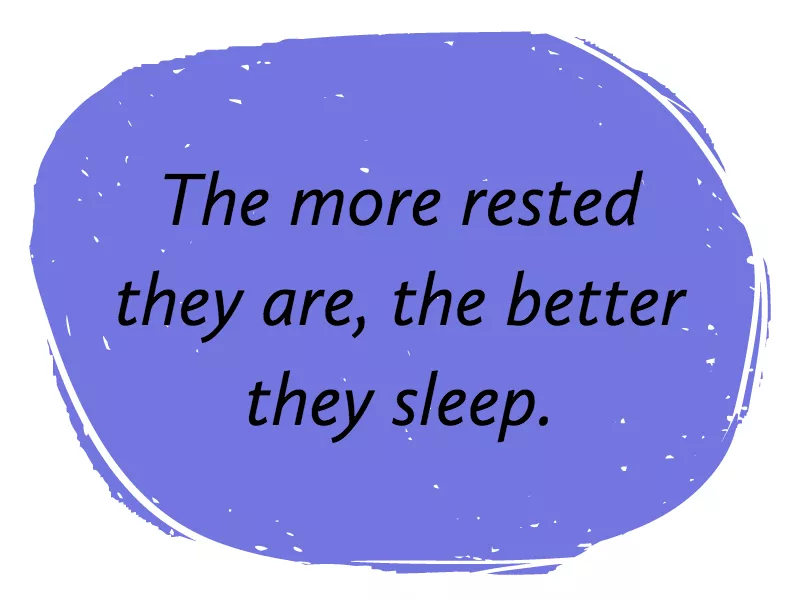
Babies sleep differently than adults. So, don’t listen to the myth that, if babies sleep during the day, they won’t sleep at night.
It’s just not true. In fact, the more rested they are, the better they sleep.
Pay Close Attention to Signs of Tiredness

In a similar vein, watch for signs that your baby is sleepy, so you know to allow them to sleep.
Eye rubbing and crying for no apparent reason means the baby is already overtired. Because the signs of drowsiness can be subtle, it will take time for a new parent to learn them.
Let Your Baby Sleep as Much as They Want
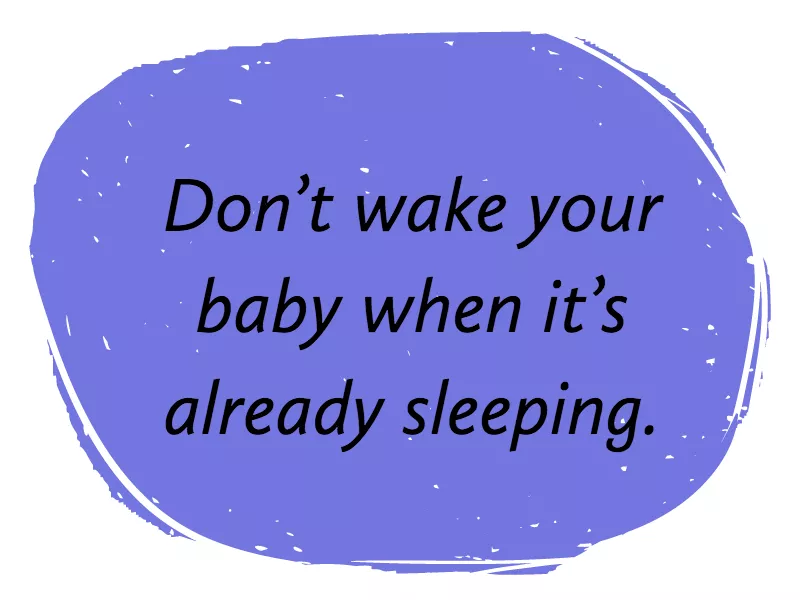
Don’t wake up your baby during morning and afternoon naps.
The more well rested they are in the daytime, the more likely they will sleep well at nighttime.
Create a Sleeping Space (or Spaces)

Giving your baby a chance to sleep in the same place helps them develop sleep cues. This lets them know that, when you put them in this place, it’s time to sleep.
And remember: Sleeping in a stroller or the car isn’t the same quality sleep as sleeping in a crib at home.
Get Your Baby Enough Calories During the Day
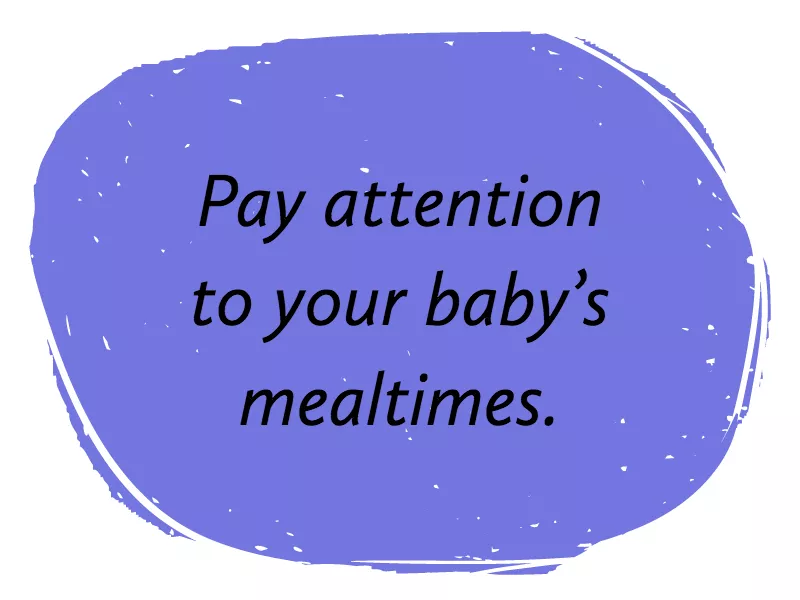
We’re not saying to count your infant’s calories, but we are saying that you should pay attention to your baby’s mealtimes, what they are eating and how much.
If babies aren’t getting enough calories during the day, then they’re sure to wake up hungry at night.
Be Consistent
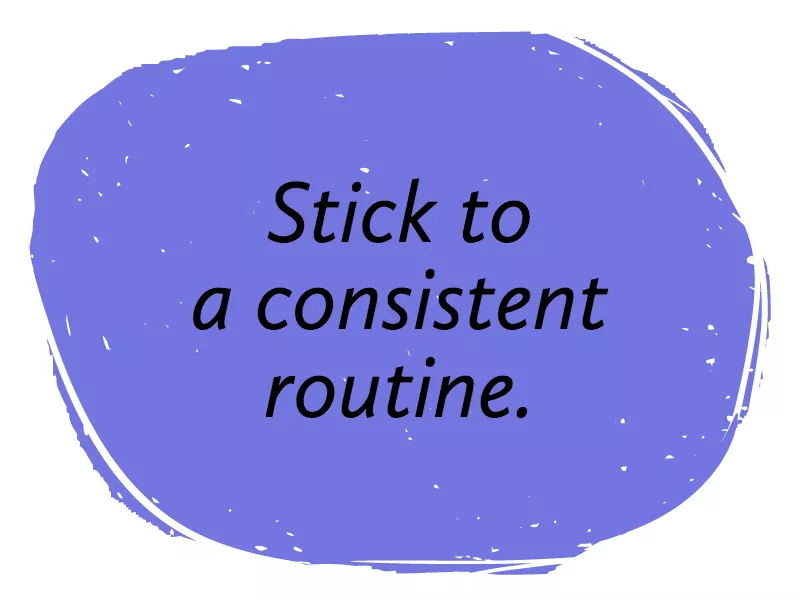
Whatever routine you have, try to stick to it.
Try putting the baby to sleep in the same place around the same time, every day. Consistency is key.
Put Your Baby to Sleep When They’re Still Awake
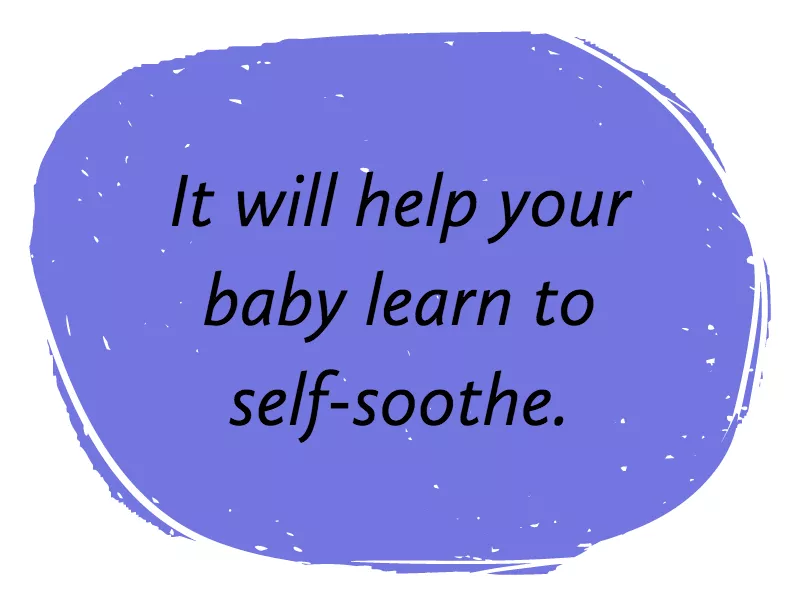
If you put your baby to sleep when he or she is drowsy, but still awake, it will help your baby learn to self-soothe.
That way, when they wake up at night, they will already know how to put themselves back to sleep.
Your Bedtime Routine Is Critical
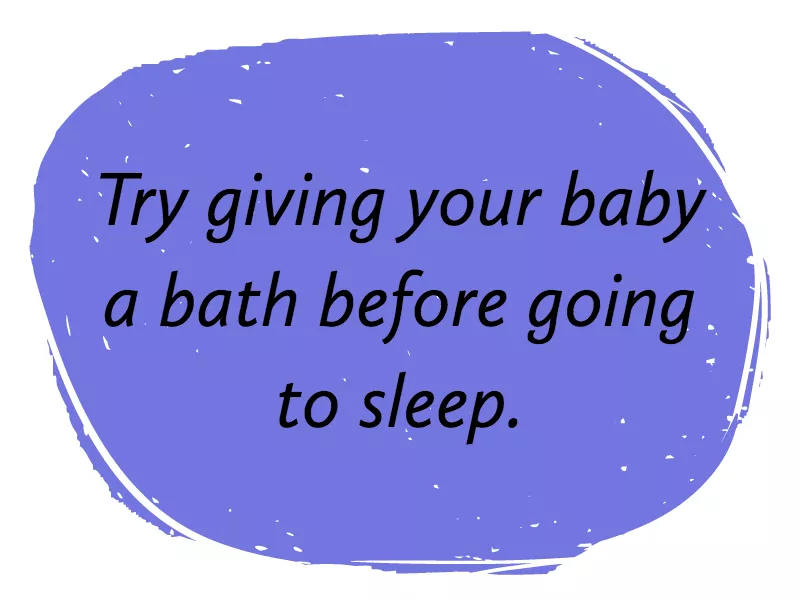
Have a plan and don’t waiver: Read a book, sing a favorite song or two, and then it’s lights out.
Many moms suggest giving your baby a bath before going to sleep. A bath may stimulate some infants, however, so pay attention to how yours reacts, knowing that all babies are different.
“The Pause”

Journalist Pamela Druckerman’s famous book “Bringing Up Bébé” mentions what French parents call, “the pause.” It consists of a few minutes in which the parents let the baby cry to see if they can settle themselves back down once they realize mom or dad aren’t going to come bursting into the room to save the day.
This also assumes the baby sleeps in a room separate from their parents. If your baby does wake up and you need to go into the room, try to stimulate them as little as possible.
Move the Baby Into Their Own Room
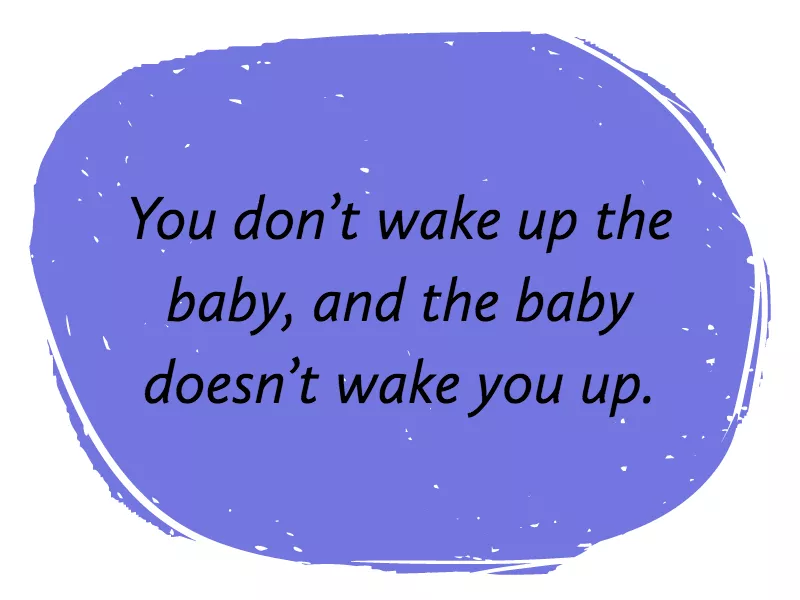
The American Association of Pediatrics recommends babies share a room with their parents for at least six months and ideally a year — but that your baby sleep on a different surface, for example, in a crib while parents sleep in a bed next to the crib.
For families that decide having a baby in the room doesn’t work for them, however, this could mean better sleep for both parties involved. The idea of babies sleeping in their own room is that you don’t wake up the baby and the baby doesn’t wake you up. It also helps infants to learn to put themselves back to sleep when they wake up at night, instead of looking to you for soothing.
Regardless of whether your baby is in the room with you or if they are in a separate room, if your baby sleeps in a crib, remember to have no soft toys, pillows or blankets in the crib that could suffocate the baby.
Set an Early Bedtime
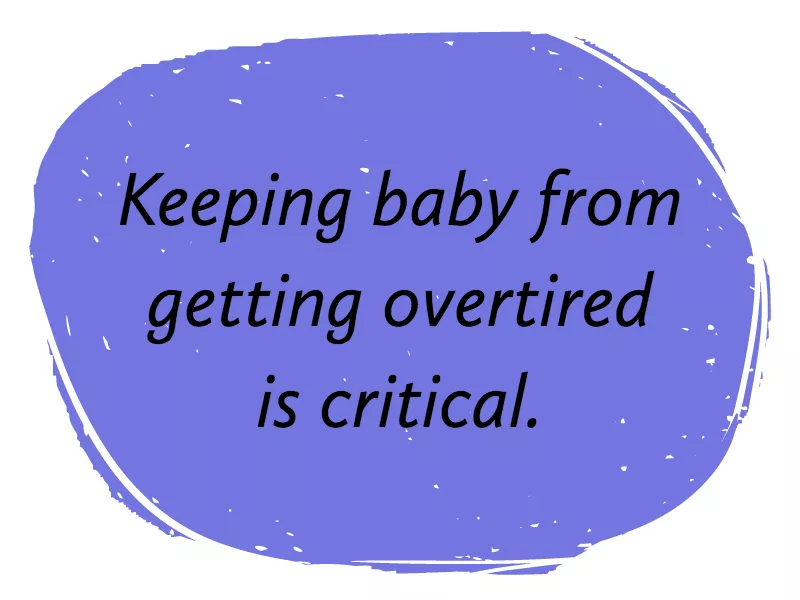
Again, an overtired baby is a baby that isn’t going to sleep well. This doesn’t apply to newborns, rather babies who are at least four months old.
We also know early bedtimes don’t work with all parent’s schedules, especially parents who work late hours, but keeping baby from getting overtired is critical to getting them to sleep through the night.
Put Your Baby to Bed 90 Minutes After They Wake Up
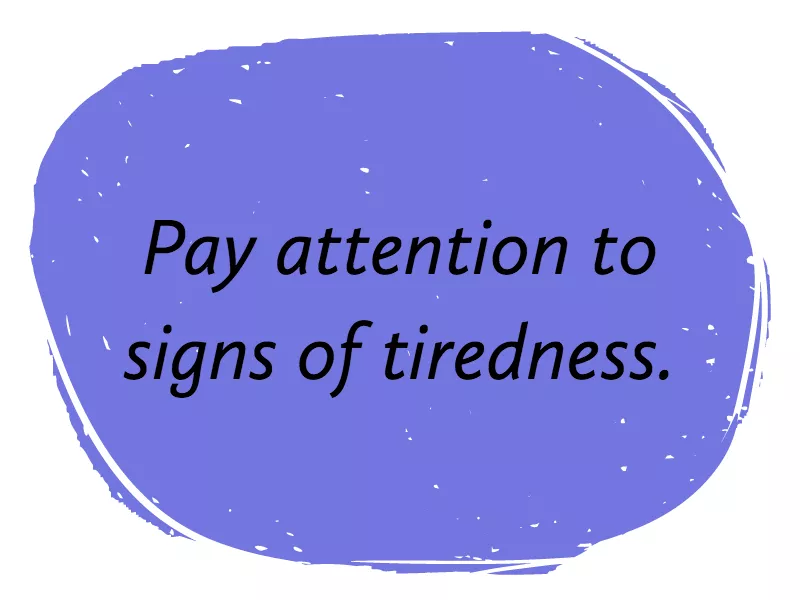
It sounds crazy but it’s true: Younger babies are ready to go back to sleep 60 to 90 minutes after waking up in the morning.
This technique stops working around 10 to 12 months, at which point you may move the first nap out by one to two hours, depending on signals of tiredness from your baby. This means that, for example, if your baby is waking up in the morning at 7 a.m., then try to put them down for their first nap after two or 2.5 hours. Again, pay attention to signs of tiredness to help you determine when it’s time for that first nap of the day.
Try White Noise
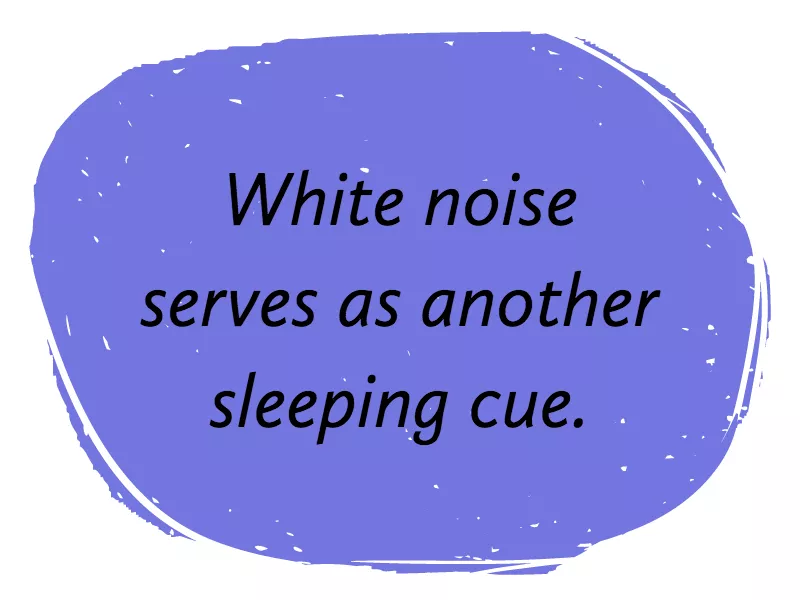
White noise can be incredibly relaxing for infants as well as adults.
It is also another sleep cue that let’s baby know it’s time to sleep, but without you having to do the soothing.
Getting to Know Your Baby Takes Practice
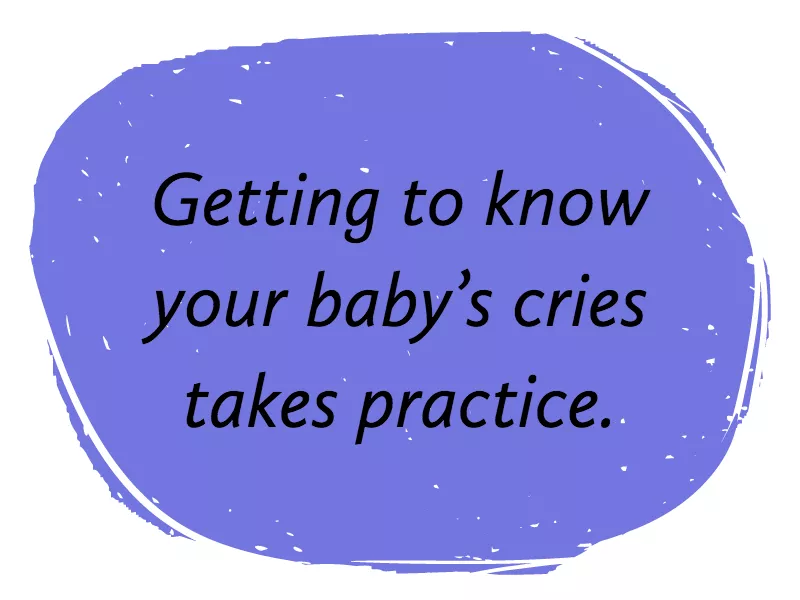
Getting to know your baby’s cries and what they mean, understand their non-verbal cues and knowing what to do about it takes practice.
If it’s your first child, it’s much harder because you’ve never been a parent before, but rest assured that it gets easier, and you’re not alone in feeling like you have no idea what you’re doing.
Get Help if You’re Feeling Depressed
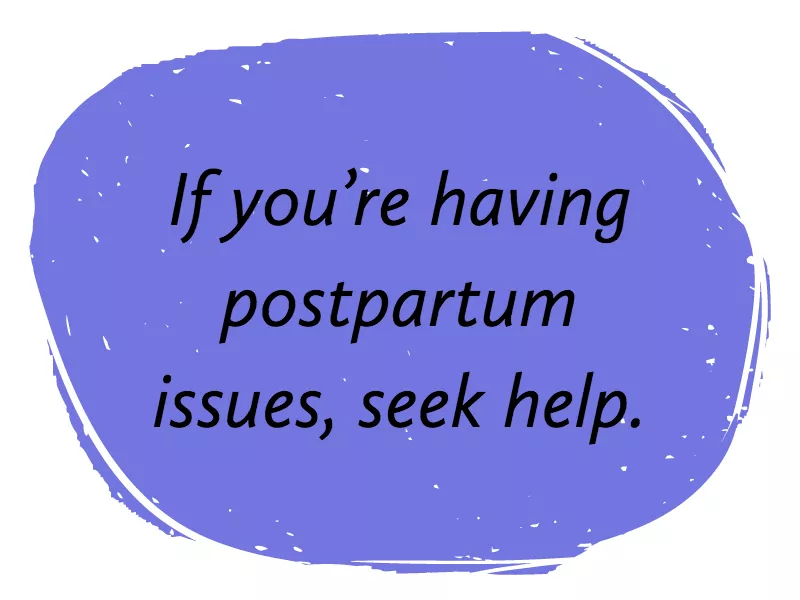
Exhaustion, sleep deprivation and depression are comorbid conditions. If you think the way you are feeling isn’t normal for you and especially if you are having thoughts about hurting yourself or your baby, get psychological help immediately.
Postpartum support international offers services and can help you find local resources to get the care you need.
Read Books
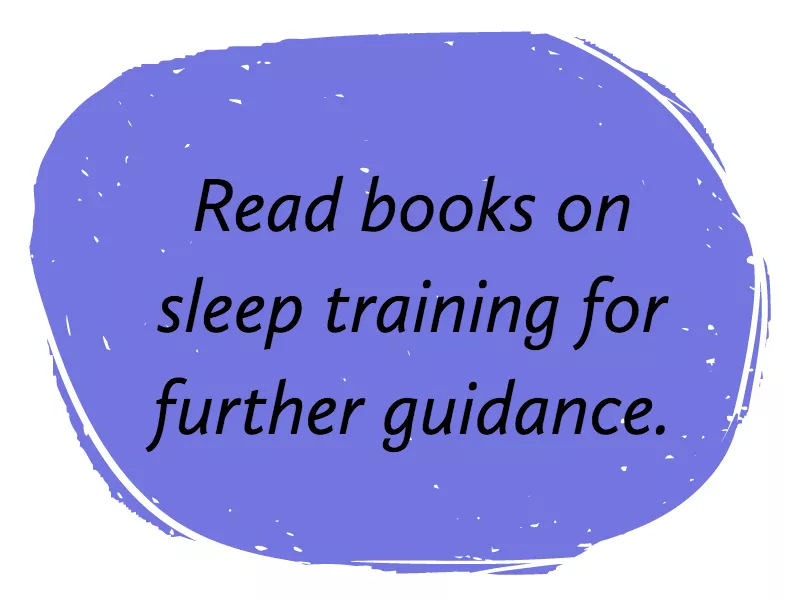
The book, “The Good Sleeper” by Dr. Janet Kennedy, offers a much more in-depth study of babies and sleep training. As previously mentioned, Pamela Druckerman’s famous book, “Bringing Up Bébé,” is another must-read, especially because French parents have an entirely unique way of approaching parenting that works brilliantly.
Take it from me, it’s worth it to get a better understanding of your baby’s sleep patterns, especially to learn what’s normal (or not normal) as you enter this world of parenting.
Want to sleep better and have more mental and physical energy when you are awake? Download Loóna, an award-winning sleep app that uses art, guided meditation, storytelling and science to help people unwind, relax and get more restful sleep.